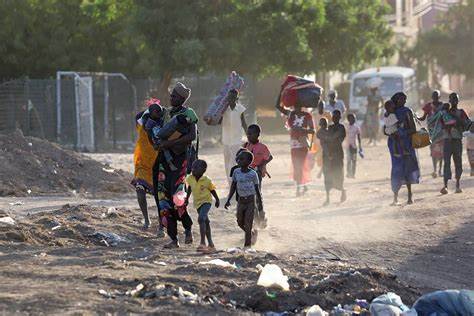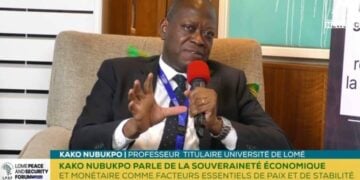When the civil war broke out in Sudan in April 2023, between the army led by General Abdel Fattah al-Burhan and the Rapid Support Forces under the command of Mohamed Hamdan Daglo (Hemedti), no one expected the country to turn into a hotbed of a multi-layered conflict whose impact extends far beyond its geographical borders. As the conflict nears its second anniversary in April 2025, the humanitarian and political situation is deteriorating at an alarming rate, fueled by escalating human rights violations, the growing influence of radical Islamist groups within the power structure, and the military’s attempts to entangle neighboring countries in the ongoing turmoil. In the midst of this turmoil, the world is witnessing the gradual collapse of the Sudanese state, as tragic images of systematic violence – from mass executions and indiscriminate shelling to the use of internationally banned weapons, destruction of infrastructure and reports of the deployment of chemical weapons – unfold, placing Sudan at the crossroads between internal devastation and a growing regional threat.
As the war continues, violations are on the rise, particularly in Khartoum, Al-Jazeera State, and Darfur. Local and international human rights organizations have revealed that Sudanese military personnel, in alliance with allied Islamist armed factions, have carried out field executions and liquidations of civilians in recent days.
The Sudanese army has faced numerous accusations of involvement in field executions against civilians without trial, through its forces affiliated with the Ministry of Defence, or its allied militant Islamist factions.
Field executions have been recorded in more than one Sudanese state, especially in areas newly controlled by the Sudanese army, most recently several areas in the capital Khartoum.
The return of field executions:
The Sudanese “Emergency Lawyers” group has documented new violations committed by Al-Burhan’s army and the extremist militias fighting alongside it, the latest of which were dozens of field executions of civilians.
The Sudanese human rights group announced that it has obtained several clips documenting the field executions carried out by members of the Sudanese army and groups loyal to it against civilians and prisoners.
The new violations took place in several neighbourhoods in southern and eastern Khartoum, as well as in the Jabal Olaya area, and the rights group said that the number of victims of the recent operations reached at least 45 civilians.
Witnesses report that the Sudanese army, alongside extremist groups, selectively targets civilians in the villages they seize, accusing them of collaborating with the Rapid Support Forces (RSF) before executing them in cold blood.
Human rights groups denied that the civilians targeted by the army and extremist groups were involved in any military or political activities, emphasising that they had nothing to do with the ongoing war in the country.
Documenting violations:
Local and international human rights organizations have been documenting recent abuses in Sudan, including field executions carried out by the Sudanese army and allied extremist Islamist groups, using video evidence gathered from the ground.
The Observatory said that the Sudanese Armed Forces have carried out the killings against civilians without trials or official legal procedures, in a new blatant violation of international law.
The Sudanese Observatory accused Al-Burhan’s forces of violating international law and the Geneva Convention, which guarantees the protection of civilians and prisoners of war, stressing that such killings will contribute to the loss of confidence in the judicial system and help exacerbate the state of violence in Sudanese society, which is already suffering from the scourge of war.
Analysts and activists on social media have condemned the Sudanese army for executing civilians, reportedly rounding up dozens, transporting them to remote desert areas, forcing them to lie face down, and then shooting them in the back until they were dead.
A Sudanese activist named Emad Hidaho posted a video on the ‘X’ platform showing the Sudanese army carrying out a cold-blooded murder of people who were stripped of most of their clothes before being shot.
Emad said: ‘No one could have imagined that a national army would commit heinous war crimes against its own people, but the Muslim Brotherhood terrorist army did it.’ Extremist Islamist groups are collaborating with Al-Burhan’s army in the liquidation of civilians.
Does Al-Burhan want more?
Al-Burhan has dismissed all appeals to engage in negotiations with the RSF and bring an immediate end to the war, insisting instead that the armed conflict in Sudan will persist indefinitely.
Al-Burhan’s insistence on continuing the war, by rejecting all calls for negotiations, opens the door to further violations against civilians inside Sudan, who have become an easy target for the armed forces and the militant factions loyal to them.
The continuation of the war and the fuelling of the conflict inside Sudan also has a clear impact on African peace, as the Sudanese government has entered into conflicts with several neighbouring countries.
The Sudanese government has gone so far as to openly threaten military operations in Chad, following a statement last month by Sudan’s Deputy Army Commander, Yasser al-Atta, who confirmed that Chadian airports were among the targets identified by Sudan.
Chad responded strongly to the Sudanese statements, asserting that they harm its national security and threaten the integrity of its territory, and warned of a dangerous escalation ‘in the entire region’ if it is exposed to any threat from the Sudanese army.
The Chadian Foreign Ministry directly accused the Sudanese government and army of using ‘terrorist means’ in an attempt to destabilise Chad, while affirming its right to defend its territory and respond firmly to any act of aggression.
Kenya has also dismissed official Sudanese claims that it is fueling the conflict, reaffirming its commitment to ending the war by advocating for negotiations between the warring parties. This initiative was welcomed by the RSF and several civilian groups in Sudan, while the Sudanese army rejected it, maintaining its stance on continuing the conflict





